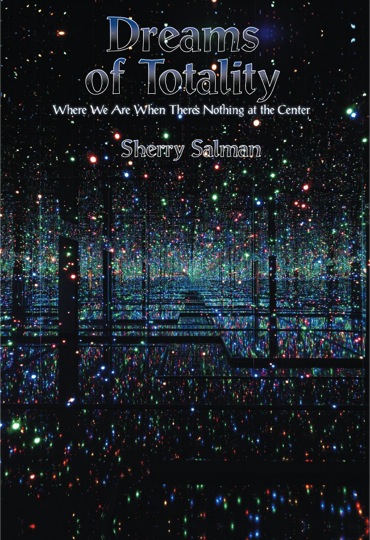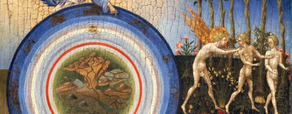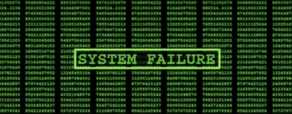 The kingdom of heaven, global climate meltdown and networks of terror, the beloved who completes us, and the virtual cyber village all have something in common. As products of our imagination, symbolic expressions of totality like these orient individual and collective life. Both panacea and poison, our dreams of totality power religious beliefs, sociopolitical programs such as capitalism and globalism, psychology’s narratives of wholeness, even our ideas about individual and cultural health.
The kingdom of heaven, global climate meltdown and networks of terror, the beloved who completes us, and the virtual cyber village all have something in common. As products of our imagination, symbolic expressions of totality like these orient individual and collective life. Both panacea and poison, our dreams of totality power religious beliefs, sociopolitical programs such as capitalism and globalism, psychology’s narratives of wholeness, even our ideas about individual and cultural health.
When dreams of totality go bad, and they often do-becoming totalitarian or fundamentalist-they are more destructive than any plague or natural disaster. Dreams of Totality explores images of wholeness in cultures from ancient civilizations through today. It explains why symbols of totality appear without fail in response to chaos and distress, how they subsequently entomb us, and then eventually deconstruct as disenfranchised elements of psyche and society press for inclusion. Today, unmoored dreams of totality like globalization and the virtual Web community are taking over our collective imagination at the same time we are being exploited by a surfeit of image-industry spin. But as this book explains, we can’t go backward into malignant nostalgia for a time when the gods spoke as one, take refuge in fractured fundamentalisms, nor should we succumb to a casual relationship to truth. Rather, preserving the creative function of dreaming of totality while at the same time loosening its often-deadening grip-an Rx for taking the medicine of totality when there’s nothing at the center-is crucial as we try to cultivate an ethic of responsibility and integrity toward one another on a global scale.
Available at your favorite bookseller:
Alibris.com
Amazon
Barnes & Noble
Booksamillion.com
Golden Notebook in Woodstock
IndieBound
CG Jung Foundation
Oblong Books in Rhinebeck
Spring Journal Books
Reviews
Reading this book I felt I was in the presence of something momentous…courageous and brilliant… Salman is writing about the dreams in the world around us. Page after page, my neck hairs tingled at her insights on subjects including psychology, religion, politics, sexuality, pornography, globalization, corporate capitalism, the environment and, not least, social media and the World Wide Web. The world needs this essay and its plea for imagination and empathy.
— Harvey Shepherd, Newsletter, The C.G. Jung Society of Montreal
Read review»
The book shines…the strong emphasis on imagination and imagery is one of the powerhouses of her argument which is to come to terms with imagination and its dreams of totality. Her final chapter is an excellent set of steps for delving into the potential sense of living in a meaningless, or uncentered world… Salman provides an exceptional journey detailing how we seek to explain such a world by drawing on history, philosophy, psychology, and art.
– Jung Journal: Culture & Psyche, Brian Donovan
Read review
A provocative, rewarding read urging wakefulness…like a mythological weaver, Jungian psychoanalyst Salman pulls together a variety of strands, from Indra’s Net to the World Wide Web — dreams of totality, visions of utopias and dystopias. Her wide-ranging intellect and breadth of reference reverberates in the book’s 27 illustrations, from prehistoric stone circles to Tibetan mandalas and microphotographed stem cells.
– Chronogram
Read review»
This fascinating examination of our reaction to change is both impressive and inspiring. Salman brings her considerable knowledge to bear on the ways humanity has coped with transitions in the past, and how we might approach things differently with the accelerated pace of change in the twenty-first century… as the network-based globalization of the Internet age, essentially centerless, may force us out of old patterns into a new level of connectedness.
– Sheila M. Trask, January 28, 2014, Clarion
Read review»
In this thoroughly of the moment book, Salman sees the approaching reckoning with our slouching monster headed toward its postmodern Bethlehem as a confrontation with imagination itself, rather than with the parade of ideas, religions, or cultural and political systems that history has presented through the veil of Maya.
– Quadrant, XLIV, 2015, Jeffrey Rubin Morey
Read review»




